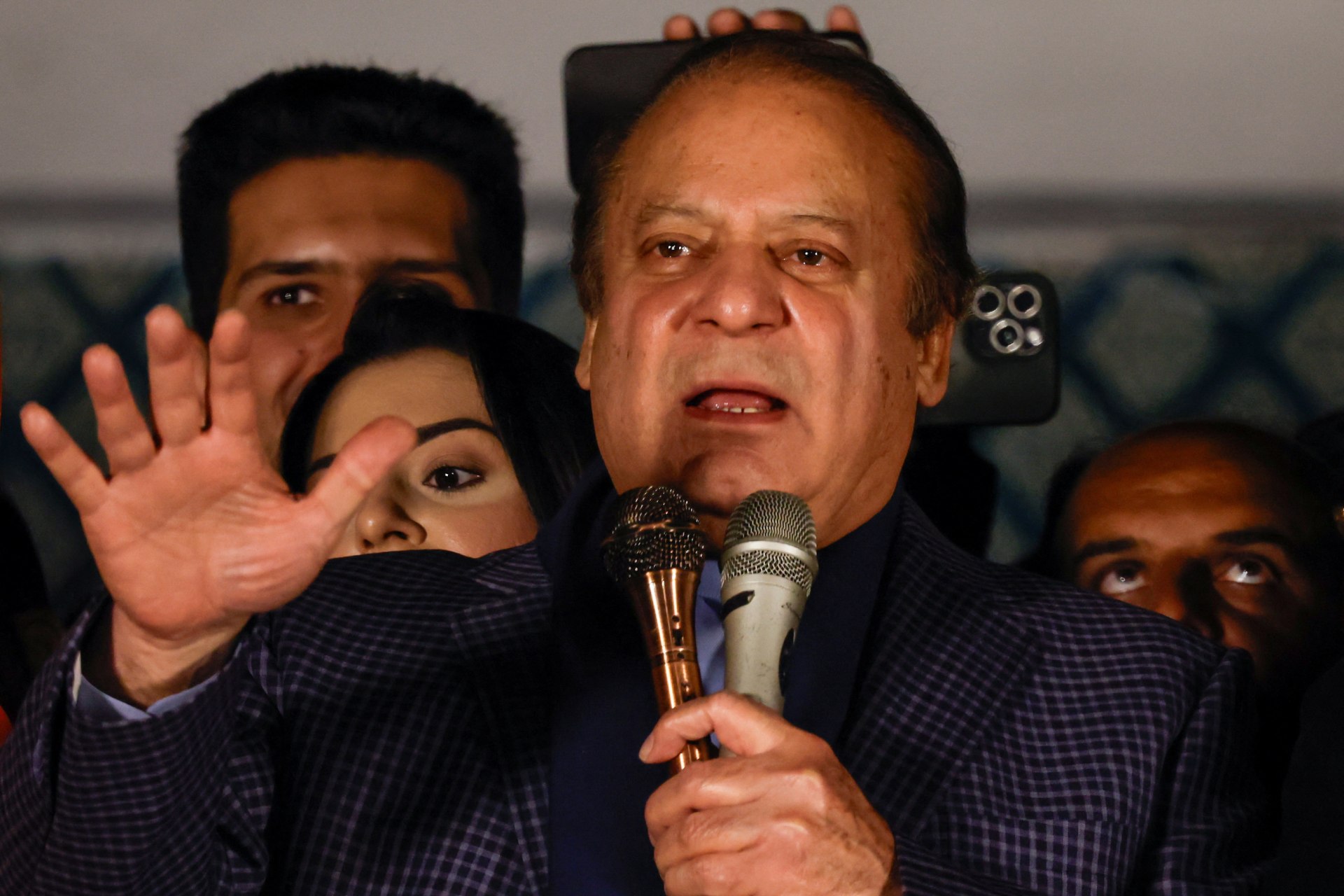Pakistan’s Election Results: Imran Khan Claims Victory, But He’s Unlikely to Get it
Former Prime Minister Imran Khan’s party has performed well in Pakistan’s election despite the electoral deck being stacked against it.

By experts and staff
- Published
Experts
![]() By Joshua KurlantzickSenior Fellow for Southeast Asia and South Asia
By Joshua KurlantzickSenior Fellow for Southeast Asia and South Asia
Pakistan election results are still trickling in. At this point, it appears that despite all the obstacles placed against it—Imran Khan sentenced to jail, curbs on his Pakistan Tehreek-e-Insaf (PTI) party’s ability to organize, mobile phone and internet outages on election day, which probably disproportionately affected his supporters—PTI is currently leading in the number of parliamentary seats gained. They had around ninety at the latest count (counting is still ongoing, so take total numbers with a grain of salt), significantly higher than the seats gained by the party of Nawaz Sharif, the military’s clearly favored candidate. Sharif’s party appeared to have sixty-six seats, but it is possible that the remaining twenty-nine seats uncalled as of this writing would also go to Sharif’s party, which would give him a narrow majority. Then again, some may not, resulting in a possible PTI win or a narrow deadlock. As the New York Times noted, “Other key P.M.L.N. [Sharif’s party] leaders in Mr. Sharif’s inner circle lost their races in constituencies that were once strongholds for the party.”
What is clear is that despite all the obstacles, PTI put up a highly impressive showing, even if they fell slightly short of a Sharif party given every possible advantage by the military. The vote demonstrates that the party’s confrontational stance toward the military’s role in Pakistan’s politics and economy is not going away. This sentiment is especially shared by young Pakistanis who increasingly see the military (in my opinion, correctly) as an anti-democratic and corrupt force that uses all sorts of tricks to enrich itself and various prominent Pakistani businesses.
In addition, PTI’s success also demonstrates that young voters are not only fed up with the military—they protested the military in recent years, something unheard of in the past—but also are tired of Pakistan’s litany of economic woes, which include an underperforming economy, poor infrastructure, an underperforming export industry, and a lack of decent jobs for young people. They don’t trust Sharif, who oversaw many of Pakistan’s economic miseries and IMF bailouts (which often failed) to right the economy. Even though it is unclear if Khan’s populist policies would help either, many young people and other voters appear willing to give them a shot.
What happens now? If Sharif’s party gains a majority, the military will breathe a bit easier, though they must be unsettled by how well PTI did even with the deck stacked against them. For his part, Khan has claimed victory in the election and intimated that if PTI does not win, dirty tricks are happening.
Indeed, there seem to be concerning irregularities in light of the other problems with the election. As the Times reported, the Interior Ministry attributed the delay in calling some seats to a ‘lack of connectivity’ related to security precautions. However, human rights groups and analysts expressed concern that it could be a sign of tampering by the military. They warned that it would raise questions about the legitimacy of the incoming government.
“This lack of transparency is deeply concerning,” the Human Rights Commission of Pakistan announced on the platform X. “We see no plausible reason to attribute this delay to any extraordinary circumstances that might justify it.”
And if, despite all of this, PTI comes out with the most seats, well, that’s the military’s nightmare. They could use other tricks like judicial cases to disqualify enough PTI candidates to deprive the party of control, a tactic perfected in Thailand and sometimes used in Pakistan. Or, the army may feel so threatened that they fall back on their old reliable: a military coup.
This publication is part of the Diamonstein-Spielvogel Project on the Future of Democracy.
